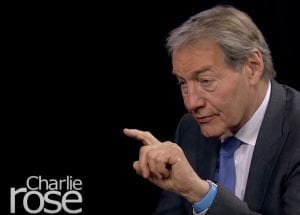
Author: James
What Makes a Good Thriller
One definition: A thriller is a fast-paced novel full of conflict, tension, suspense, unexpected twists, and high stakes. Every single scene and element in a thriller is meant to propel the action forward, test the characters, and take the readers on a roller coaster ride that will leave them on the edge of their seats. I was visiting technology schools in California a few years ago and my companion and I rushed off to enjoy a roller coaster ride, straight after breakfast. By the time I had been thrown around and tossed up and down, I felt physically sick. It might have been the big breakfast! This raises an interesting thought—how much of a wild ride do good thrillers have to have? For some, the pace is never too fast; for others, a more measured rise in tension is preferred. I think I’m in between. I like twists and turns, yet also building tension. And, I am over plots that are too far fetched. For me, the action must be real, or plausible. The bottom line is that a thriller needs to have thrills, no matter what the ride is like.

Just Start Writing
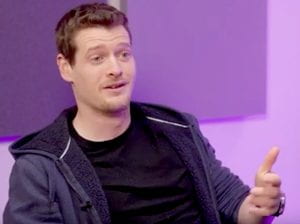 ” When I get an idea I just start writing,” says Ascension author Nicholas Binge. “I’m such a discovery writer, I have no idea where I’m going with it.”
” When I get an idea I just start writing,” says Ascension author Nicholas Binge. “I’m such a discovery writer, I have no idea where I’m going with it.”
Nicholas loves the spontaneous approach to writing (with a few standard “touch points”) and I work the same way. Other writers plan their plot from the get-go, but I wonder if there writing is, as a result, formula driven? Each to their own I guess. You can watch this fascinating insight into the breakthrough deals that launched Nicholas onto the world stage here.
The End
The end of a novel is simply the most difficult to do well; a finish line reached by the athletic culmination of words racing forward from the opening line. I found that my writing slowed at the end, like an exhausted athlete who is filled with elation and emotion as he collapses over the tape, triumphant. I hope my readers share the same emotion.
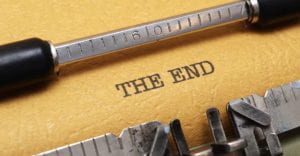
‘So we beat on, boats against the current, borne back ceaselessly into the past.’ writes F. Scott Fitzgerald in The Great Gatsby. I like this because it is profound and emotive; a final comment about chasing the American dream.
Quotes by Famous Writers
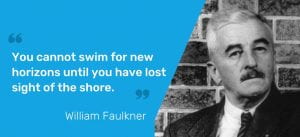
What I Learned from Writing my First Novel
First, let’s back up. My writing took rough shape when I won a writing contest at age 12, It was a short story about my cat, called Mog and it won me a year’s pass to our local movie theatre and a little publicity in our local paper. I don’t remember all the details, but the movie pass was wonderful, and opened my eyes to cinema, stories and characters. My next claim to fame was a high school textbook, co-authored and well received with several reprints. I wrote my first novel – 3 WISE MEN – following an idea about the power of perfume and the details fell into place after a trip my wife and I took to Europe. I self published and was able to revise and improve over several months. So, what did I learn from writing this first novel:
Start you second novel as soon as possible as it will always be better
I guess I need to qualify what “better” means. It can be summed up this way; a second novel will most likely have more nuanced themes and a more interesting/complex plot with improved conflict, characters with depth, and be a more fulfilling story for your readers. I can remember being quite angry at the thought that “your first book is always your worst’ but, in some ways, it is. In my case, I made several re-writes of 3 WISE MEN that improved it. However, even after several great reviews, I agree that first books are lacking the quality of subsequent ones. My second manuscript was built on the lessons of the first and, by this stage, I had a greater sense of my personal writing style. Yes, my first novel was not bad at all (based on reader feedback), but my second has a quality that I know is better, even before an editor gets his or her scissors to it.
Self Publish vs Traditional
Someone asked me why I didn’t just self-publish to get me book ‘out there’ as I did last time. Why persist in editing, refining, getting feedback from beta readers, and sending off query letters to chosen literary agents? Here is my answer:
Self Publishing is from my head, but traditional publishing is from my heart
I so believe in my book, in its plot, characters, potential and value, that I want to find an agent who thinks likewise, and who will work with me to make it the very best of my work. Therefore, I will persist for however long it takes, to get it accepted by a traditional publisher. The task may be difficult, but so has been the writing; writing from the sum of my experiences since my youth and wisdom and observations from my mature life. I’m not suggesting that my new novel will be a best-selling, but it is selling my best for others to enjoy and ponder on the world we share in such a way to want to make it a better place for all. At one point I wanted to throw my manuscript away, but now I want to embrace it. Therefore, I will persist.
Best Writers
Writing—the Art of Being Funny
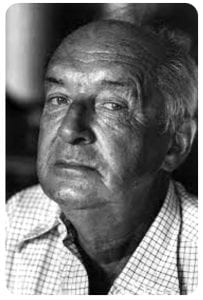
Vladimir Vladimirovich Nabokov, also known by the pen name Vladimir Sirin, was an expatriate Russian and Russian-American novelist, poet, translator, and entomologist. Born in Imperial Russia in 1899, Nabokov wrote his first nine novels in Russian while living in Berlin.
I love this quote by Vladimir;
Any writer who’s going to be any good, is going to be funny
Getting Started
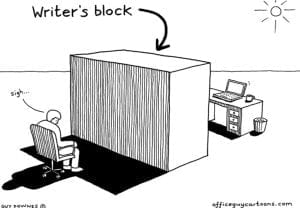 Martin Amis describes how he starts a novel and, in many ways, this gels with me too.
Martin Amis describes how he starts a novel and, in many ways, this gels with me too.
“The common conception of how novels get written seems to me to be an exact description of writer’s block. In the common view, the writer is at this stage so desperate that he’s sitting around with a list of characters, a list of themes, and a framework for his plot, and ostensibly trying to mesh the three elements. In fact, it’s never like that. What happens is what Nabokov described as a throb. A throb or a glimmer, an act of recognition on the writer’s part. At this stage the writer thinks, Here is something I can write a novel about. In the absence of that recognition I don’t know what one would do. It may be that nothing about this idea—or glimmer, or throb—appeals to you other than the fact that it’s your destiny, that it’s your next book. You may even be secretly appalled or awed or turned off by the idea, but it goes beyond that. You’re just reassured that there is another novel for you to write. The idea can be incredibly thin—a situation, a character in a certain place at a certain time. With Money, for example, I had an idea of a big fat guy in New York, trying to make a film. That was all. Sometimes a novel can come pretty consecutively and it’s rather like a journey in that you get going and the plot, such as it is, unfolds and you follow your nose. You have to decide between identical-seeming dirt roads, both of which look completely hopeless, but you nevertheless have to choose which one to follow.” [from The Paris Review]

